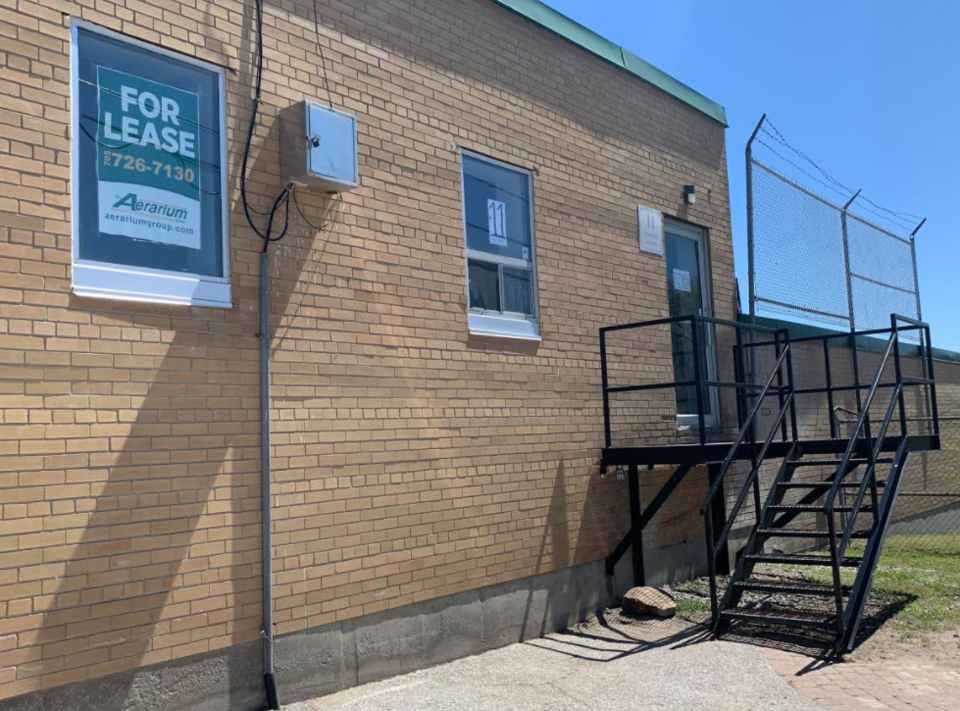After two-and-a-half years of radio silence from the province about funding for a proposed supervised consumption site (SCS) in Barrie, officials have officially withdrawn the application.
Applications for what the province refers to as a Consumption and Treatment Services (CTS) facility at 11 Innisfil St., near the city’s downtown, were submitted to Health Canada and the Ontario Ministry of Health on Oct. 7, 2021, by the Simcoe County branch of the Canadian Mental Health Association (CMHA).
The Barrie proposal was endorsed by the previous city council in June 2021.
The application was approved at the federal level through the granting of an exemption to a section of the Controlled Drugs and Substances Act (CDSA) on Sept. 9, 2022. It was renewed in September 2023.
However, local health officials say despite several requests, there has been no response from the Ontario Ministry of Health, which would have been responsible for funding capital and operating costs.
An SCS/CTS provides a safe space and sterile equipment for people to use pre-obtained drugs under the supervision of health-care staff. Consumption means taking opioids and other drugs by injection, smoking, snorting or orally.
The Ford government launched a broad SCS review following a shooting outside of a site in Toronto's Leslieville neighbourhood last summer, with Michael Tibollo, the associate minister of mental health and addictions, saying in the fall that this would include the development of new safety protocols.
That review ultimately meant all pending and new applications for SCS facilities in the province were put on hold.
Dr. Valerie Grdisa, CMHA Simcoe County's CEO says this lack of a response has prompted them to make the “very difficult decision” to withdraw the current application for the Barrie location.
In a news release issued Monday afternoon, she noted that although they "appreciate these decisions require careful consideration," the organization was "not comfortable continuing to pay rent without a response when we could be using these funds to meet other needs of the community.”
"Since autumn 2021, we (have) made significant investments in this site because it is a crucial service for the community," she added. "As each month passed, more lives were and continue to be lost in Barrie and Simcoe County to the opioid crisis."
The CMHA's Simcoe County branch and the Simcoe Muskoka District Health Unit say they "appreciate the extensive efforts and commitment to achieve these services in Barrie from a wide range of local health and community services organizations, community members, and members of the business community," according to the news release.
"Over the past six years, these efforts have helped demonstrate the local need for such a service and the role that CTS sites can play in helping to save lives and contributing to safer communities," the release added.
In May 2024 alone, public health officials say there were 16 suspected drug-related deaths in the region.
In 2023, 53 people died in Barrie from a suspected opioid-related poisoning, and from Jan. 1 to June 11 of this year, there were 26 suspected drug-related deaths in Barrie and the immediate surrounding area.
On average, there are 25 emergency department visits related to suspected overdoses in the region every week, officials say.
“It continues to be clear from research on CTS sites in Ontario and elsewhere that they remain a key service to help prevent serious harms to individuals who use drugs, and increase uptake of addiction treatment and other health and social services,” Dr. Lisa Simon, the local health unit's associate medical officer of health, said in the release.
“They also serve the broader community by improving public order and safety through reducing the presence of discarded drug paraphernalia and public drug use," she added.
Despite withdrawing the application, both organizations — in partnership with other front-line health and community service providers — say they will continue to respond to the drug toxicity crisis through collaborative efforts.
They say the Simcoe Muskoka Drug Strategy — which is a partnership of regional agencies, organizations and individuals — "remains committed to working together" to address the harms of the current drug toxicity crisis.
This includes exploring expansion of low-barrier access to medical treatment for opioid addiction, raising public awareness of the impact of the crisis and policy changes needed to address it, as well as working with people who use drugs to ensure alignment with their needs, according to the release.
— With files from The Trillium






